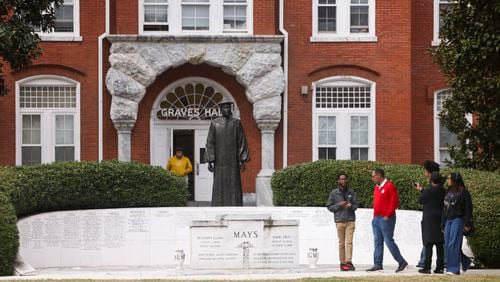With the higher standards and tougher tests introduced into Georgia schools, shouldn’t we spare teachers any other new initiatives for a while and let them teach?
Apparently not.
If the governor has his way, teachers could confront a new merit pay system that would attempt to quantify how their instruction enhanced student learning and pay them accordingly. Gov. Nathan Deal told the AJC he intends to push for merit pay and ask lawmakers to make a “significant” step toward tying teacher pay to their classroom performance.
“We’re not going to go to a fully merit-based pay system, but I do think there is a portion of the teachers’ pay that should go to how good a teacher they are,” Deal said. “Now, getting the education community to support that is sometimes difficult.”
“We want it to be an objective assessment,” said Deal. “Much of it has to, of course, be subjective. We think there’s a way to do it, and we’re going to try to move it along the road. We’re not going to get as far as perhaps some would like for us to go, but we think the first step is significant.”
Georgia began talking in earnest about merit pay a few years ago. Several factors stopped the concept from moving forward, including opposition from teachers. The political fervor around performance pay cooled a bit as research shows it’s difficult to quantify teacher effectiveness based on student scores. Without a reliable way to judge the most effective teachers and tease out what a teacher brings to the student performance equation, it’s hard to defend merit pay.
Value-added measures — using student growth as measured by tests to analyze how much a teacher advanced the learning of each student — are still being debated as studies show a large proportion of teachers rated highly one year fall to the bottom the next.
Good teacher evaluation systems are complex. In Denver, teachers and administrators created a system that incorporates 10 weights to assess success, such as pursuing professional development, working in a high-needs school, receiving a glowing evaluation and raising test scores.
What does not work — and where Deal appears to be headed — is a top-down performance pay system developed without the input of teachers.
The governor already stands accused of excluding teachers from the table. He did not appoint any practicing classroom teachers to his 35-member Education Reform Commission. The commission had five subcommittees: funding, early childhood, move on when ready, educational options and teacher recruitment, retention and compensation.
As Margaret Ciccarelli, director of legislative affairs for the Professional Association of Georgia Educators, told the commission, “The commission missed an opportunity to include classroom teachers’ experience, expertise and concerns. That critical voice would have been very helpful in policy proposals aimed at preparing students for the future and recruiting, retaining and compensating teachers.”
“Georgia is poised to double and triple down (on) testing by continuing the rollout of high-stakes educator performance evaluations premised on student test scores. Now, the first priority recommendation from the teacher recruitment, retention and compensation committee, in coordination with the funding committee, is to raise the stakes even higher by mandating districts base new teacher pay on their performance.”
About the Author






